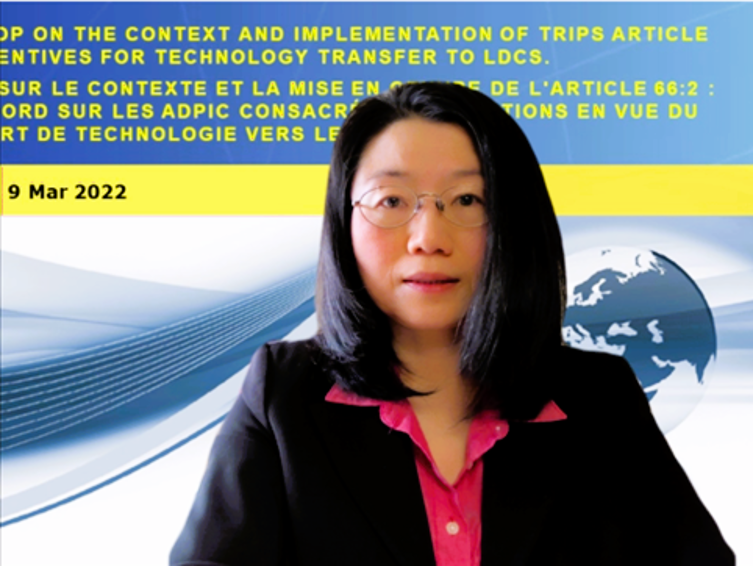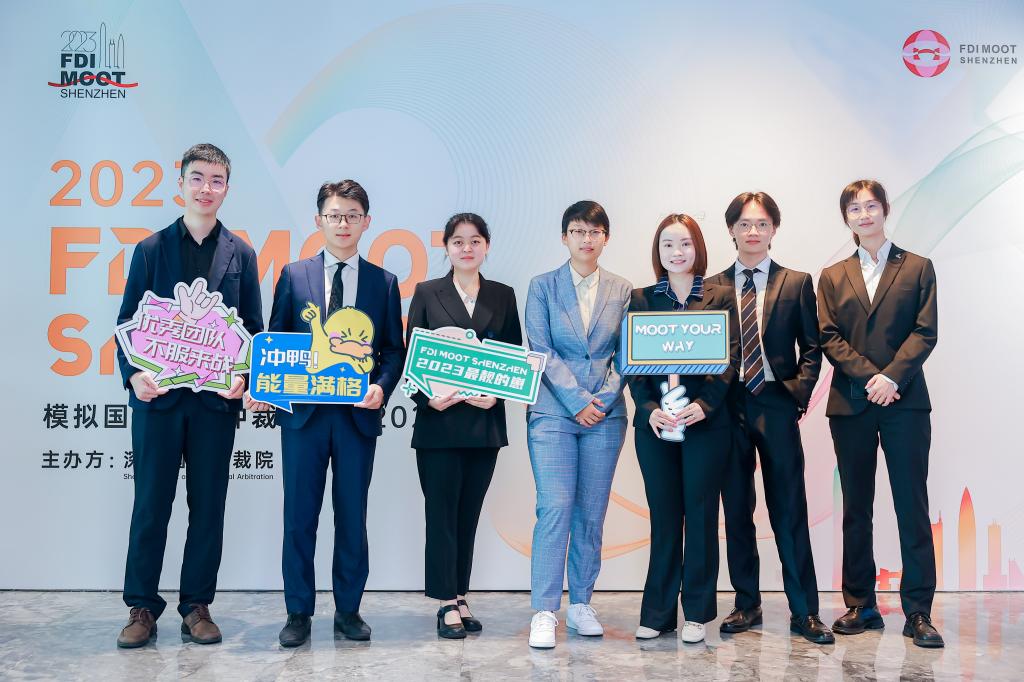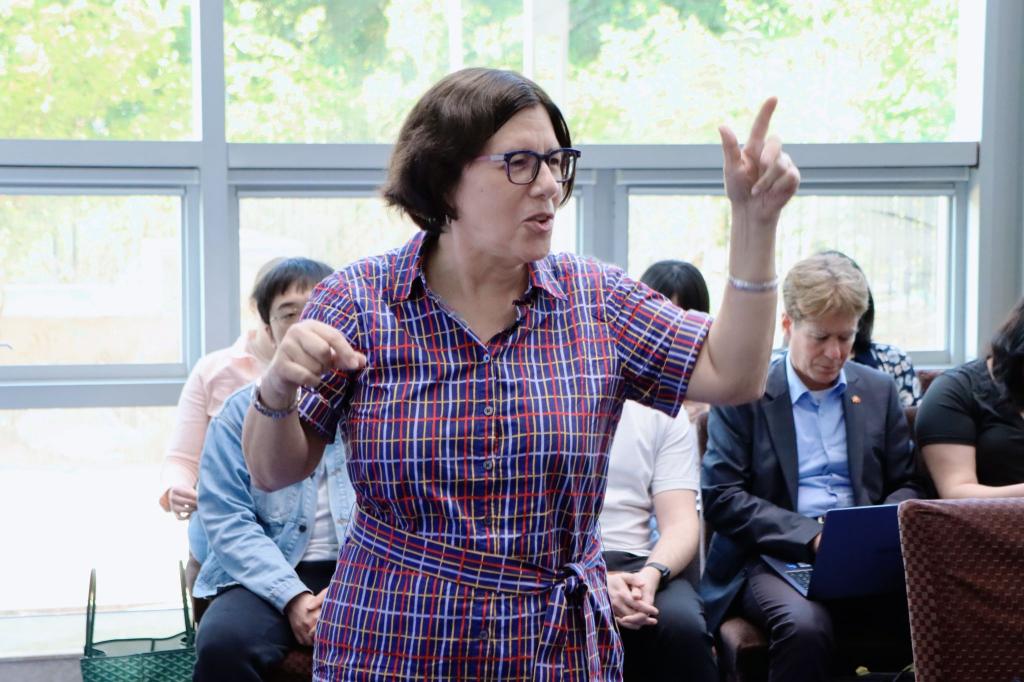Copyright © 2022 Peking University School of Transnational Law.

2022-05-20 Views: 1
Per the WTO TRIPS team’s engagement, STL Professor Joy Xiang spoke at the recent WTO Workshop on Technology Transfer to the LDCs. The three-day workshop explored ways to implement Article 66.2 of the WTO TRIPS Agreement to enhance technology transfer to the least developed countries (LDCs). Representatives from the LDCs, leading developed countries, and international institutions such as the United Nations Framework Convention on Climate Change, the United Nations Technology Bank, the United Nations Environment Programme, the World Health Organization, and the World Intellectual Property Organization all contributed to the discussion.

Professor Xiang presented a talk concerning the realities of technology transfer to the LDCs and a plausible solution, based on her research captured in the newly published monograph on Climate Change, Sustainable Development, and Cleantech. Professor Xiang suggested the international community provide coordinated support to the LDCs to help them upgrade their capacities in attracting, absorbing, and adapting advanced foreign technologies. Professor Xiang was delighted to notice that the WTO Workshop organizers had invited other multilateral agencies into the Workshop, resulting in a well-around dialog and potentially synchronized efforts in enhancing international support to the LDCs.
Meanwhile in December 2021, Professor Xiang participated and contributed to an invitation-only workshop on the Low-Carbon Patent Pledge, an initiative founded by Microsoft, Facebook, and HPE in which the holders of key patented technologies have pledged to make them available on a no-charge basis for use in low carbon innovations including the generation, storage, and distribution of low carbon energy.
In February 2022, Professor Xiang was invited to present a lecture on Cleantech Patents at the University of Washington School of Law by Professor Toshiko Takenaka, a leading scholar in comparative patent law.
Recently in April 2022, Professor Xiang joined with a dozen of law and economics scholars (led by Professor Jorge Contreras, a leading scholar in IP, antitrust, and standards) in filing an Amicus Brief with the U.S. Court of Appeals for the Fifth Circuit concerning the caseContinental Automotive Systems v. Avanci LLC.The Amici are scholars focusing on intellectual property law, intellectual property licensing, antitrust law, and standard-setting, having extensively researched, published, and taught courses on these subjects and their intersection. The Amicus Briefargues that all implementors of a technological standard shall enjoy the Fair, Reasonable, and Non-Discriminatory (FRAND) commitment made to the Standard Setting Organization (SSO) by the owner of a Standard Essential Patent (SEP). The Brief concludes that “limiting an SSO member’s FRAND commitment to other SSO members is contrary to the bedrock purpose of the FRAND commitment.” The Brief also argues that merely licensing the SEP tosomeconsumers of an implementor does not fulfill the SEP owner’s FRAND commitment.
June 29, 2024
June 20, 2024
June 20, 2024

June 20, 2024

June 19, 2024